Healing the nation
Gênero : Documentário
Runtime : 0M
Director : Jack Major, Ernest W. Matton
Sinopse
Healing the Nation follows community members of the Toronto-based Aboriginal Healing Program as they rediscover their culture to heal from unresolved trauma. This empowering documentary dares us to think beyond mainstream medicine and embrace Indigenous ways for overcoming mental health and addiction issues.

Charlie é um jovem que tem dificuldades para interagir em sua nova escola. Com os nervos à flor da pele, ele se sente deslocado no ambiente. Sua professora de literatura, no entanto, acredita nele e o vê como um gênio. Mas Charlie continua a pensar pouco de si… até o dia em que dois amigos, Patrick e Sam, passam a andar com ele.
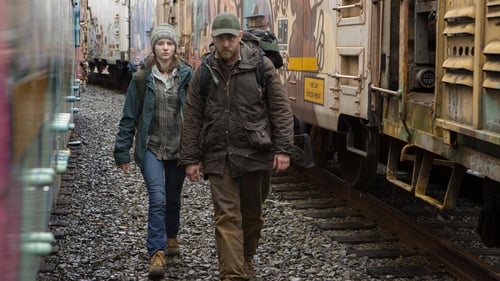
Will e sua filha adolescente, Tom, viveram felizes e indetectados pelas autoridades durante anos em uma vasta reserva na fronteira de Portland, nos EUA. Após um encontro inesperado, eles são retirados do acampamento e colocados sob a responsabilidade do serviço social. Will e Tom tentam retornar ao mundo selvagem enquanto são forçados a lidar com desejos conflitantes.

Os mortos estão voltando à vida fora da reserva isolada Mi'gmaq de Corvo Vermelho, exceto por seus habitantes indígenas que são imunes à peste zumbi. Traylor, o xerife tribal, deve proteger a namorada grávida de seu filho, refugiados apocalípticos, e reservar riff raff das hordas de cadáveres brancos ambulantes.

Conheça a luta de comunidades minoritárias da Nova Escócia, que enfrentam as autoridades contra os efeitos letais dos resíduos industriais.
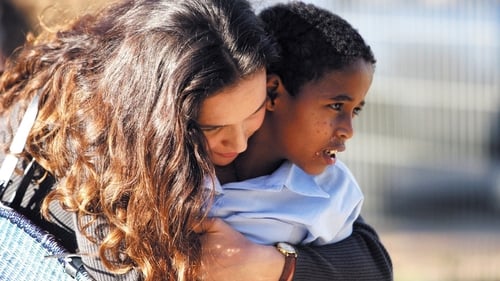
In 1980 the black Falashas in Ethiopia are recognised as genuine Jews and are secretly carried to Israel. The day before the transport the son of a Jewish mother dies. In his place and with his name (Schlomo) she takes a Christian 9-year-old boy.
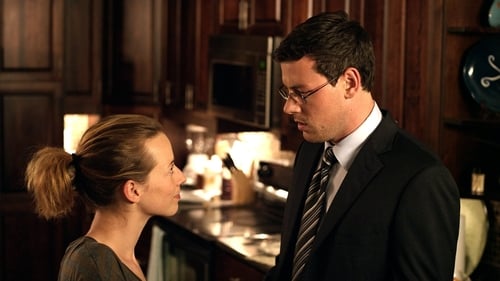
O filme retrata a história de Kate Ascher (Karine Vanasse), que após testemunhar o suicídio de sua irmã, sofre de stress pós-traumático e é desacreditada pelo marido, James Ascher (Cory Monteith) gerente de uma loja rival a Target e Wal-Mart e que tem um caso com Nicole Cambria (Emily Hampshire), outra funcionária do estabelecimento. Quando Simon Brunson (Kevin Zegers), um ex-bombeiro que se feriu durante o trabalho, é contratado no departamento, Kate começa a reavaliar o modo como lida com o trauma.

A therapist loses her grip on reality when a ten-year-old boy claims he can control her future.
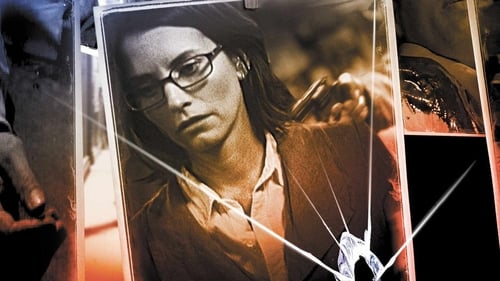
Sophie Jacobs is going through the most difficult time of her life. Now, she just has to find out if it's real.
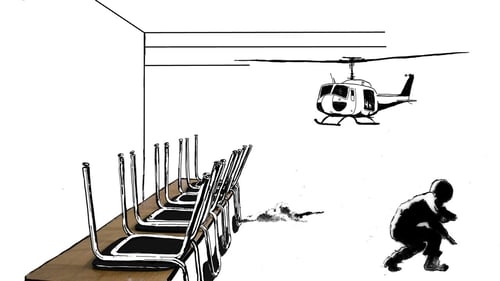
When Bill Babbitt realizes his brother Manny has committed a crime he agonizes over his decision to call the police.

For ancient Mayans, cocoa was as good as gold. For subsistence farmer Eladio Pop, his cocoa crops are the only riches he has to support his wife and 15 children. As he wields his machete with ease, slicing a path to his cocoa trees, the small jungle plot he cultivates in southern Belize remains pristine and wild. His dreams for his children to inherit the land and the traditions of their Mayan ancestors present a familiar challenge. The kids feel their father's philosophies don't fit into a global economy, so they're charting their own course. Rohan Fernando's direction tenderly displays a generational shift, causalities of progress in modern times and a man valiantly protecting an endangered culture. Breathtaking vistas of lush rainforests contrast with the urban dystopia that pulled Pops children away from him. Will one child return to carry on a waning way of life

Imprisoned during the Spanish Civil War, John "Kit" McKittrick is released when a New York City policeman pulls some strings. Upon returning to America, McKittrick hears that a friend has committed suicide, and he begins to smell a rat. During his investigation, McKittrick questions three beautiful women, one of whom has a tie to his refugee past. Pursued by Nazi operatives, McKittrick learns of the death of another friend, and begins to suspect the dark Dr. Skaas.

CREE CODE TALKER reveals the role of Canadian Cree code talker Charles 'Checker' Tomkins during the Second World War. Digging deep into the US archives it depicts the true story of Charles' involvement with the US Air Force and the development of the code talkers communication system, which was used to transmit crucial military communications, using the Cree language as a vital secret weapon in combat.

The Blackfoot bareback horse-racing tradition returns in the astonishingly dangerous Indian Relay. Siksika horseman Allison Red Crow struggles with secondhand horses and a new jockey on his way to challenging the best riders in the Blackfoot Confederacy.
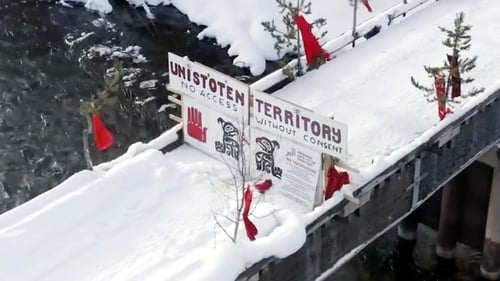
In this era of “reconciliation”, Indigenous land is still being taken at gunpoint. INVASION is a new film about the Unist’ot’en Camp, Gidimt’en checkpoint and the larger Wet’suwet’en Nation standing up to the Canadian government and corporations who continue colonial violence against Indigenous people. The Unist’ot’en Camp has been a beacon of resistance for nearly 10 years. It is a healing space for Indigenous people and settlers alike, and an active example of decolonization. The violence, environmental destruction, and disregard for human rights following TC Energy (formerly TransCanada) / Coastal GasLink’s interim injunction has been devastating to bear, but this fight is far from over.

The territory of Akwesasne straddles the Canada-U.S. border. When Canadian authorities prohibited the duty-free cross-border passage of personal purchases - a right established by the Jay Treaty of 1794 - Kanien'kéhaka protesters blocked the international bridge between Ontario and New York State.

NIN E TEPUEIAN - MY CRY is a documentary tracks the journey of Innu poet, actress and activist, Natasha Kanapé Fontaine, at a pivotal time in her career as a committed artist. Santiago Bertolino's camera follows a young Innu poet over the course of a year. A voice rises, inspiration builds; another star finds its place amongst the constellation of contemporary Indigenous literature. A voice of prominent magnitude illuminates the road towards healing and renewal: Natasha Kanapé Fontaine.

This documentary digs into the stories of Indigenous women and families to reclaim their Indian Status through their fight for the elimination of sex-discrimination in the Indian Act. It highlights the impacts of the law on individuals, families and communities. Since the passing of Bill S-3 and its amendments, thousands of Indigenous people are now eligible for Indian Status.

Gil Cardinal searches for his natural family and an understanding of the circumstances that led to his becoming a foster child. An important figure in the history of Canadian Indigenous filmmaking, Gil Cardinal was born to a Métis mother but raised by a non-Indigenous foster family, and with this auto-biographical documentary he charts his efforts to find his biological mother and to understand why he was removed from her. Considered a milestone in documentary cinema, it addressed the country’s internal colonialism in a profoundly personal manner, winning a Special Jury Prize at Banff and multiple international awards.

“Those Who Come, Will Hear” proposes a unique meeting with the speakers of several indigenous and inuit languages of Quebec – all threatened with extinction. The film starts with the discovery of these unsung tongues through listening to the daily life of those who still speak them today. Buttressed by an exploration and creation of archives, the film allows us to better understand the musicality of these languages and reveals the cultural and human importance of these venerable oral traditions by nourishing a collective reflection on the consequences of their disappearance.

In this follow-up to his 2003 film, Totem: the Return of the G'psgolox Pole, filmmaker Gil Cardinal documents the events of the final journey of the G'psgolox Pole as it returns home to Kitamaat and the Haisla people, from where it went missing in 1929.














